The cataract is a medical condition where the otherwise clear lens in the eye becomes progressively cloudier. The cataract is the most common eye disorder in general, is usually diagnosed in middle and old age and becomes visible behind the pupil. EuroEyes offers the cataract treatment on an outpatient basis using highly advanced methods of lens exchange. The natural lens is replaced with a clear artificial lens (intraocluar lens), which is also referred to as a lens exchange (RLE). Generally, multifocal lenses or alternatively monofocal lenses are used for the correction.
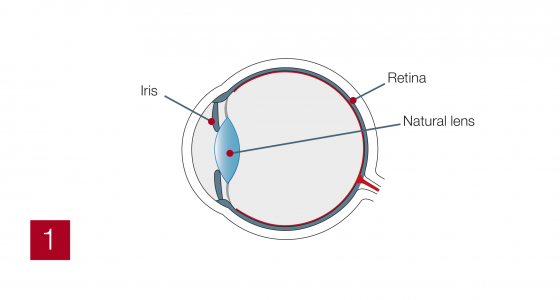
The surgery is performed on an outpatient basis and usually takes 15 minutes per eye. Before the procedure, the eye is anesthetized with drops so that the patient does not feel any pain during refractive lens exchange. The eye is opened with a tiny corneal incision, which heals seamlessly.
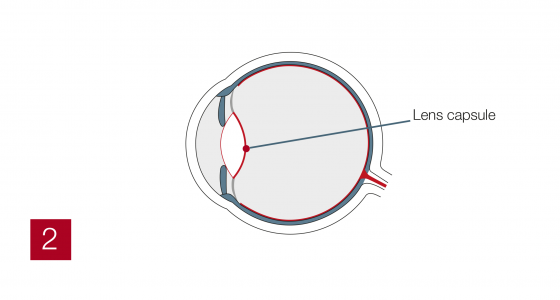
The anterior lens envelope is opened in a circular fashion. Then the lens core is removed. The rest of the lens envelope remains and serves as a ‘holding apparatus’ for the new lens.
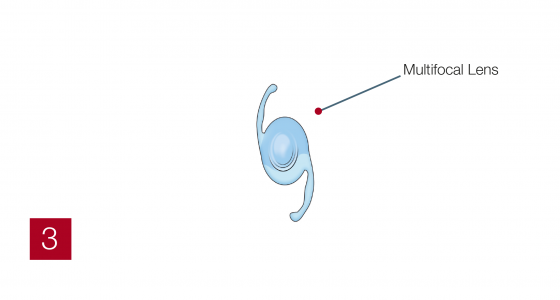
Each patient receives a trifocal/multifocal lens that is ideally adapted to his or her individual needs. This well-tolerated artificial lens can remain permanently in the eye and is not visible.
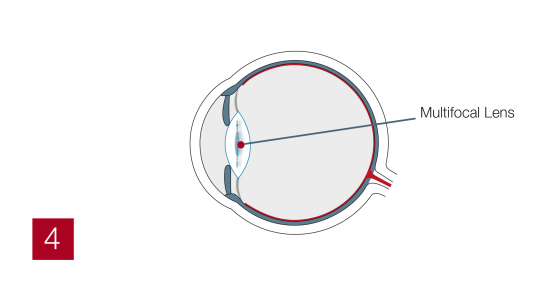
The surgeon inserts the new lens into the eye with an injector. The lens unfolds and is properly placed in the empty lens envelope by the surgeon. The trifocal/multifocal lens corrects presbyopia in addition to other existing vision disorders (near-, farsightedness and astigmatism).

To enable an even greater accuracy and perfection, EuroEyes uses the LenSx® femtosecond laser for the surgical procedure, which takes several essential steps of the lens surgery that were previously performed manually by the surgeon.
This laser eye treatment used for lens exchange, allows a painless and precise dissection of different layers of tissue in the eye. It thus offers two advantages over the manual technique: first of all, the lens exchange is precise because the trifocal/multifocal lens can be positioned accurately, and second of all, safer because the laser incisions are more precise than hand-guided incisions.
EuroEyes is one of the first LASIK clinical groups in Germany to apply the LenSx® in the field of laser lens exchange.
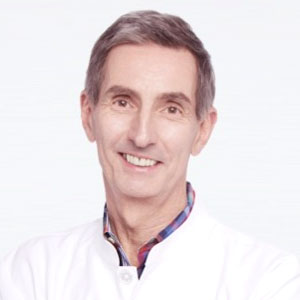
Professor of Ophthalmology at Heidelberg University in Germany
More>>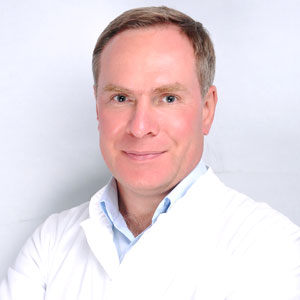
Eye surgeon and specialist in ophthalmology at the EuroEyes clinic group
More>>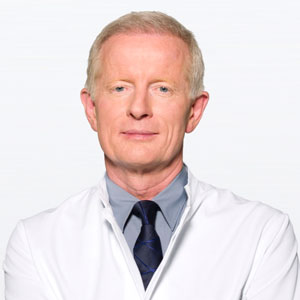
Founder of the EuroEyes Clinical Group
More>>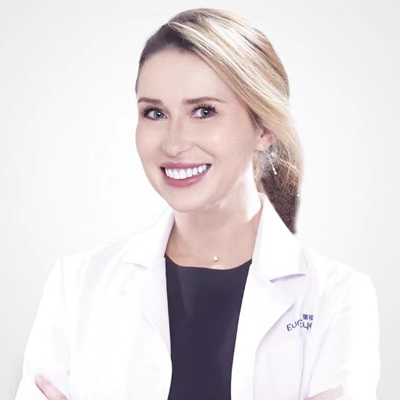
Cataract and refractive surgeon
Author of two patents
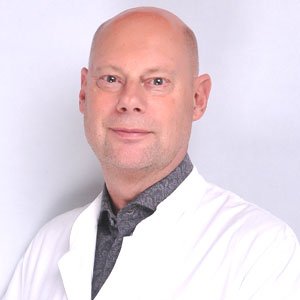
Professional experience in ophthalmology/positions
More>>
EuroEyes WeChat